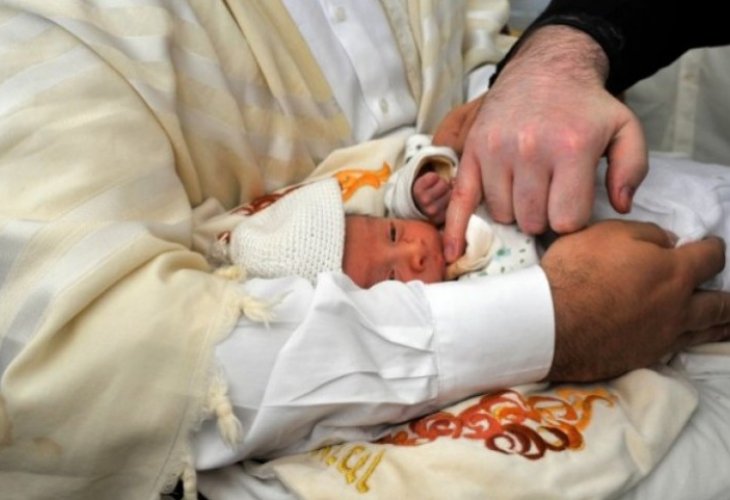Personal Stories
Hashem’s Love Is Always Near, Even When We Least Expect It
A father’s heartfelt tears lead to a miraculous bris and the birth of one of the greatest Hasidic leaders of all time

He stood at the crossroads, heartbroken and crying. Reb Pinchas had just experienced one of life’s greatest joys, the birth of a son, mazal tov. But now, on the day of his baby’s bris (circumcision), he faced a painful challenge.
Reb Pinchas lived in a small village with almost no Jewish neighbors. In those days, when a Jew wanted to celebrate a bris or a wedding, it was common to invite people from nearby villages and offer them money so they would pause their farm work, travel, and help form a minyan, the group of ten Jewish men needed for prayer.
But Reb Pinchas was extremely poor. He couldn’t even afford a simple bris meal, let alone pay people to come form a minyan. Still, he couldn’t bear the thought of not doing the bris with a proper minyan. So, with a broken heart, he went out to the crossroads, hoping and praying that a Jewish bystander might appear.
Morning turned into afternoon, and still no one came. Reb Pinchas was overwhelmed with emotion and began to cry from the depths of his soul. Suddenly, in the distance, he saw a wagon approaching.
Hope sparked in his heart. Could it be? Maybe there were Jews inside who would be willing to help.
As the wagon drew closer, the passengers saw him crying and gently asked, “Why are you crying?”
Reb Pinchas told them everything. The wagon passengers listened closely, and then one of them said, “Come with us in the wagon to your home. We are relatives on our way to a wedding. We have with us a sandak (the person who holds the baby during a bris), an important rabbi, and even someone who plays music. And we brought food and drinks for the wedding. We’ll take care of the bris meal.”
Reb Pinchas was stunned. The bris was held with honor, joy, and a proper minyan. The baby was given the name “Uri.” That baby would grow up to be the great Rabbi Uri of Strelisk, known as the “Seraph,” a fiery spiritual leader whose yahrzeit (anniversary of passing) is the 22nd of Elul.
Years later, Rabbi Uri revealed a secret: “My father didn’t know who those guests really were. But I’ll tell you. In Heaven, they saw his tears and distress. So Avraham Avinu (Abraham our forefather) was sent to be the sandak. Moshe Rabbeinu (Moses our teacher) came to be the rabbi. And King David himself came to play the music at that holy bris. All because my father cried from his heart, wanting to fulfill the mitzvah (commandment) in the best way he could.”
Here is another story to share: One of Rabbi Uri’s greatest disciples was the holy Rebbe Rabbi Shar Shalom Rokeach of Belz. His oldest son-in-law was Rabbi Chanoch Henich of Alesk.
Rabbi Chanoch was known for his powerful, intense prayers. He davened (prayed) with such strength that it nearly wore him out. One year, he came down with pneumonia. During his prayers, he would cough so hard that blood came from his lungs. His young wife, Rebbetzin Frida, was terrified. She went to her father, Rabbi Shar Shalom, and begged him, “Please tell my husband to stop praying like this, it’s risking his life!”
But Rabbi Shar Shalom replied, “Angels and fiery souls stand in Heaven waiting for his prayers. I cannot stop him. But I promise you he will recover.”
Soon after, the father-in-law and son-in-law traveled to Strelisk to spend Shabbat with Rabbi Uri.
Rabbi Uri had a unique custom. Before eating the fish on Friday night, he would take the salt and black pepper shakers from the table, empty both entirely onto the fish, and then eat it.
That Shabbat night, Rabbi Uri did the same. But this time, after he finished his portion, he handed the plate to Rabbi Chanoch and said, “Eat all of this.”
Rabbi Chanoch didn’t question. He ate every last bite. And from that moment on, he never coughed again. His lungs were completely healed.

